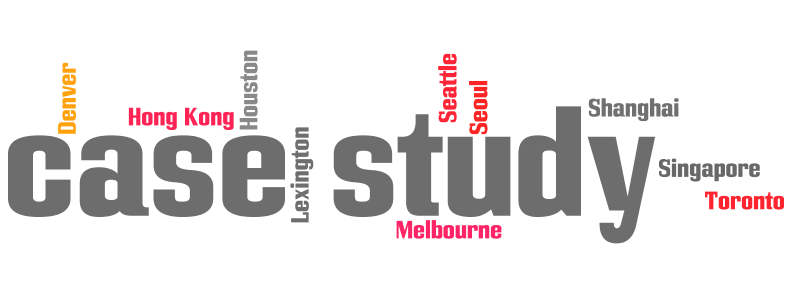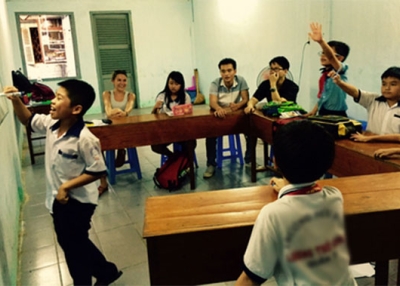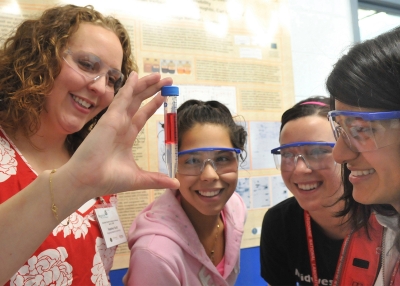Case Study: Northern College of the Arts and Technology
School–Industry Partnership in Melbourne, Australia

The Northern College of the Arts and Technology (NCAT) is a government secondary school with enrolments in Years 10 to 12, the final three years of secondary schooling, and is located approximately 10 kilometres north of the Melbourne CBD. The school delivers both of Victoria’s principal senior secondary qualifications, the Victorian Certificate of Education (VCE) and the Victorian Certificate of Applied Learning (VCAL). The school is also a Registered Training Organisation (RTO) able to deliver a range of vocational education and training (VET) certificate courses, with a focus on the Arts, Technology and Design. Students are able to undertake these VET certificates, as well as VET certificates offered by other RTOs, as part of their senior secondary studies. The school also offers a post-Year 12 Folio Preparation Program for students on a pathway into the arts and design industries. As well, NCAT also is the only provider in Australia of the Certificates III and IV in Musical Instrument Making & Repair with students coming from New South Wales, Queensland, and the Australian Capital Territory to do the program. These students and the more than 400 students from 40 neighbouring government and non-government schools accessing the VET programs, mean that NCAT caters for a student population that is more than double its current enrolment of 375.
The College has a reputation for quality curriculum design and engaging VET programs across the arts, trades and technologies. As an RTO, NCAT is registered to deliver around 30 VET certificates courses across a spectrum from Certificate Level II to Certificate Level IV. Thirteen of these courses are delivered at the College’s Trade Training Centre (TTC). Working as a consortium, the College and eight partner schools (comprising six government and two non-government schools) pooled their individual entitlements to Australian Government funding to build a state-of-the-art Trade Training Centre accessible to students from the consortium partners as well as other secondary schools in the area. The consortium schools with whom NCAT partnered are:
- Brunswick Secondary College (government);
- Charles LaTrobe College (government);
- East Preston Islamic College (non-government);
- Macleod College (government);
- Northside Christian College (non-government);
- Northcote High School (government);
- Reservoir High School (government); and
- Thornbury High School (government).
The College has a long history in identifying, creating and continually building its links with industry. In the trades and technology areas it emphasises the development of applied knowledge and skills and the building of vocational pathways toward chosen careers through connections and partnerships with industry associations and individual businesses, many of which a long-standing. This support takes a variety of forms including:
- Input on course delivery and donations of equipment and tools to train students;
- Achievement Awards;
- Student Work Placements aligned to the VET certificate being undertaken;
- Apprenticeship placements; and
- Recruitment into employment upon completing their school studies.
Across the performing arts, media, visual arts and design areas, close tertiary and industry links have delivered:
- Scholarships, Direct Entry Placements and Special Entry Placements with some of Victoria’s leading tertiary institutions; and
- Structured Work Placements and recruitment opportunities with private business enterprises.
Consequently, the linkages which have been established between NCAT and their industry partners reflect the maturity of the relationship as well as the needs and capacity of the industry partner. Specific examples of the links which NCAT has developed with its various industry partners are:
In the Engineering area, NCAT offers the Certificate II in Engineering Studies, a Year 12 VCE VET subject, which may be taken as a VCE subject with scored assessment. While the college has strong links with a number of companies, it has a particular and lengthy history with Sutton Tools (Aus/NZ). The CEO, Michael Grogan, who is also Chair of the Inner Northern Local Learning and Employment Network, chairs the NCAT Technology Reference Group, sits on the College Council and has contributed thousands of dollars of equipment and expertise in designing and fitting out the engineering area to a standard which meets the changing training needs of the industry, particularly the shift in industry demand for fields such as engineering, manufacturing, automation, control technologies, mechatronics, electrotechnology, robotics, and energy management . The company not only provides work placements but also sources its apprentices from NCAT ‘s VET Engineering graduates. It has supported talented apprentices to pursue tertiary studies, paying their course as they complete units. Harrop Engineering, similarly, has very close links with the college, providing course advice and support to ensure industry currency, providing work placements and sourcing apprentices from NCAT.
The establishment of the Certificate II in Integrated Technologies was established in response to Communications & Information Technology Training (CITT) approaching the college regarding skill shortages and the need to train young people for the broadband, ICT and digital industry. It supported NCAT in establishing and promoting the course and in forming a partnership with CISCO Systems and with Ramsden Telecommunications Training. Ramsden is a national provider of training for Telstra technicians to deliver on the implementation of broadband in Australia. As a result, Ramsden has located its Victorian Telstra training centre at NCAT. It also provides specialist training for two of the units of competency from the course, with students participating in the same training that new employees/contractors complete before they perform NBN installations.
In Electrotechnology, NHP Electrical Engineering Products has provided NCAT with over $45,000 of industrial control gear including limit switches and timers which teachers can use to demonstrate and train students undertaking both the Certificate II in Electrotechnology (Pre-vocational) and Certificate II in Electrotechnology (Career Start) to prepare them for apprenticeships or further study in the industry.
The Automotive program, which delivers Certificate II in Automotive Technology Studies (Pre-vocational) course, is also well supported by industry. Kincrome Tools and Equipment has donated all the toolboxes required to deliver the program, Ford Australia has provided two cars for students to work on while Holden Australia has provided engines valued at $30,000. In addition, one of NCAT’s part-time Automotive trainers also runs an Auto repair business locally and is able to bring in specialist equipment and provide students with the latest industry skills and knowledge as well as provide work placements for students. The college also has close links with many other companies.
The Musical Instrument Making & Repair course was introduced in response to industry need as students coming out TAFE Training in the Furnishing area were not equipped either in terms of skills or knowledge to work effectively in this specialised sector of the industry. Maton Guitars is a key partner in this course offering. Patrick Evans (Project & Product Development Manager at Maton) is on the College’s governing council and the company recruits from NCAT guitar-making students. NCAT also has close relationships with other industry leaders such as Cole Clark Guitars and internationally renowned luthiers, such as Ian Noyce, who have provided training to NCAT teachers and students. Many of the graduates from this course have established successful businesses. One of them, Shane Briggs of Shane Briggs Guitars, has just has been invited to exhibit his guitars and guitar making skills at a prestigious event, The Holy Grail Guitar Show, in Berlin later in 2014 . Guitar makers from around the world apply to exhibit at this event and only around 110 of them are chosen.
The breadth and depth of the College’s relationship with business and industry, as well as other key local stakeholders, is further evidenced by the governance structure of the Trade Training Centre. While the facility is a consortium project involving nine schools, responsibility for the day to day operation of the TTC, its ongoing financial sustainability and compliance with all contractual and reporting obligations to the Australian Government rests with NCAT. The College Council has the overarching governance responsibility for all aspects of the College’s operations. Industry and business interests and input in relation to the TTC is primarily through the Technology Reference Group which:
- Is directly accountable to the College Council; and
- Develops and implements business plan for NCAT Tech Centre.
The 20-member Technology Reference Group is chaired by a prominent local businessman, Mr Michael Grogan, CEO of Sutton Tools (Australia and New Zealand) and comprises:
- 3 representatives from industry and business;
- 7 representatives from industry and employment support organisations and networks;
- 2 representatives from government agencies;
- 3 representatives from Technical and Further Education Institutes;
- 3 representatives from consortium Schools; and
- 2 representatives from NCAT.
Individual businesses and industry bodies are also represented through other subsidiary governance bodies at NCAT and also support programs through donations of supplies and equipment.









